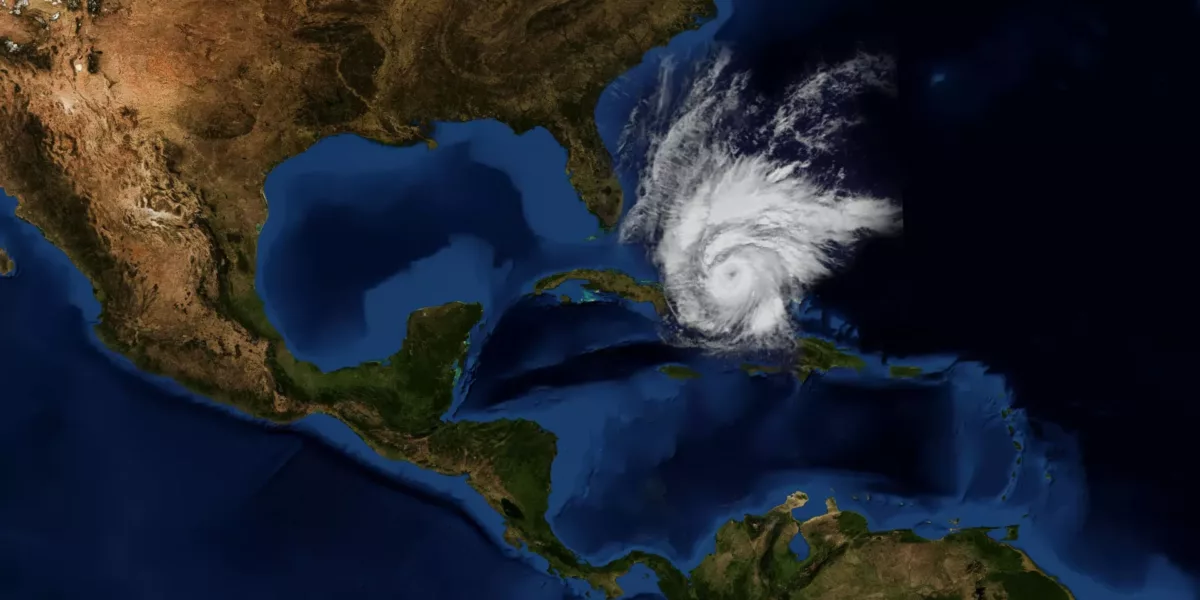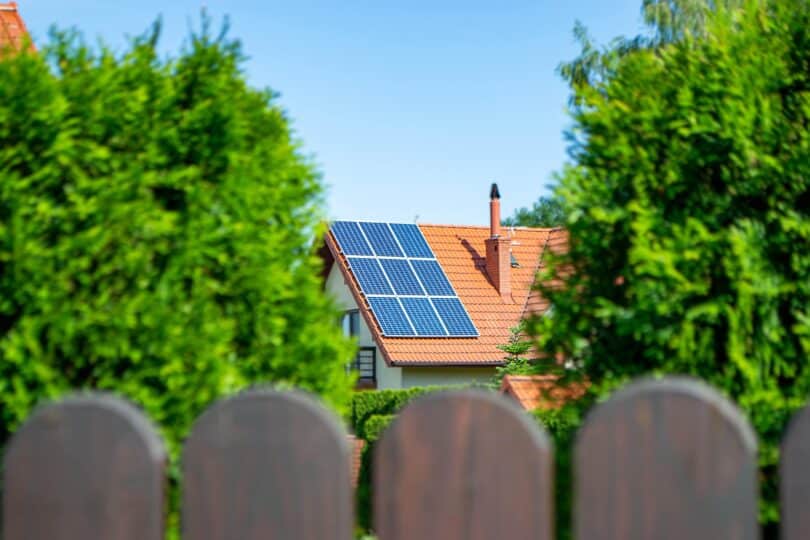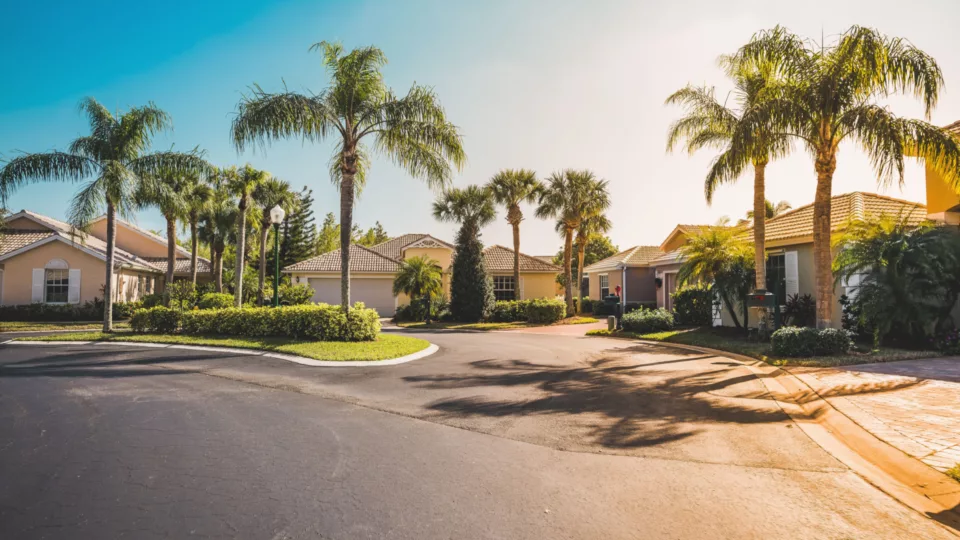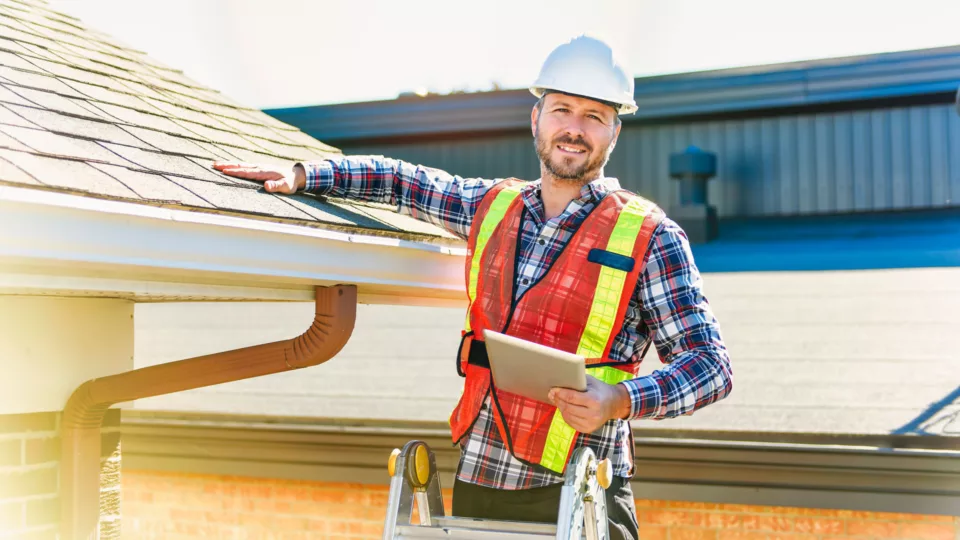In This Article
Hurricane season is upon us in Florida, and many people are wondering how best to protect their homes. And if you’re considering investing in your home’s safety, it’s best to make plans now, before a storm is on the way. And that starts with finding the best type of roof for hurricane season.
There are a lot of factors at play in choosing a wind-resistant roofing material, including location, price, and longevity. But after 20 years of installing and replacing roofs all over the Greater Tampa Bay region, Classic Roofing & Construction knows what to look for in a great roof. That’s why today, we’re passing along our knowledge on the most hurricane-proof roof designs in Florida.
But first, let’s take a look at what your roof will have to contend with during a hurricane in Florida.
How Hurricanes Damage Roofs in Florida
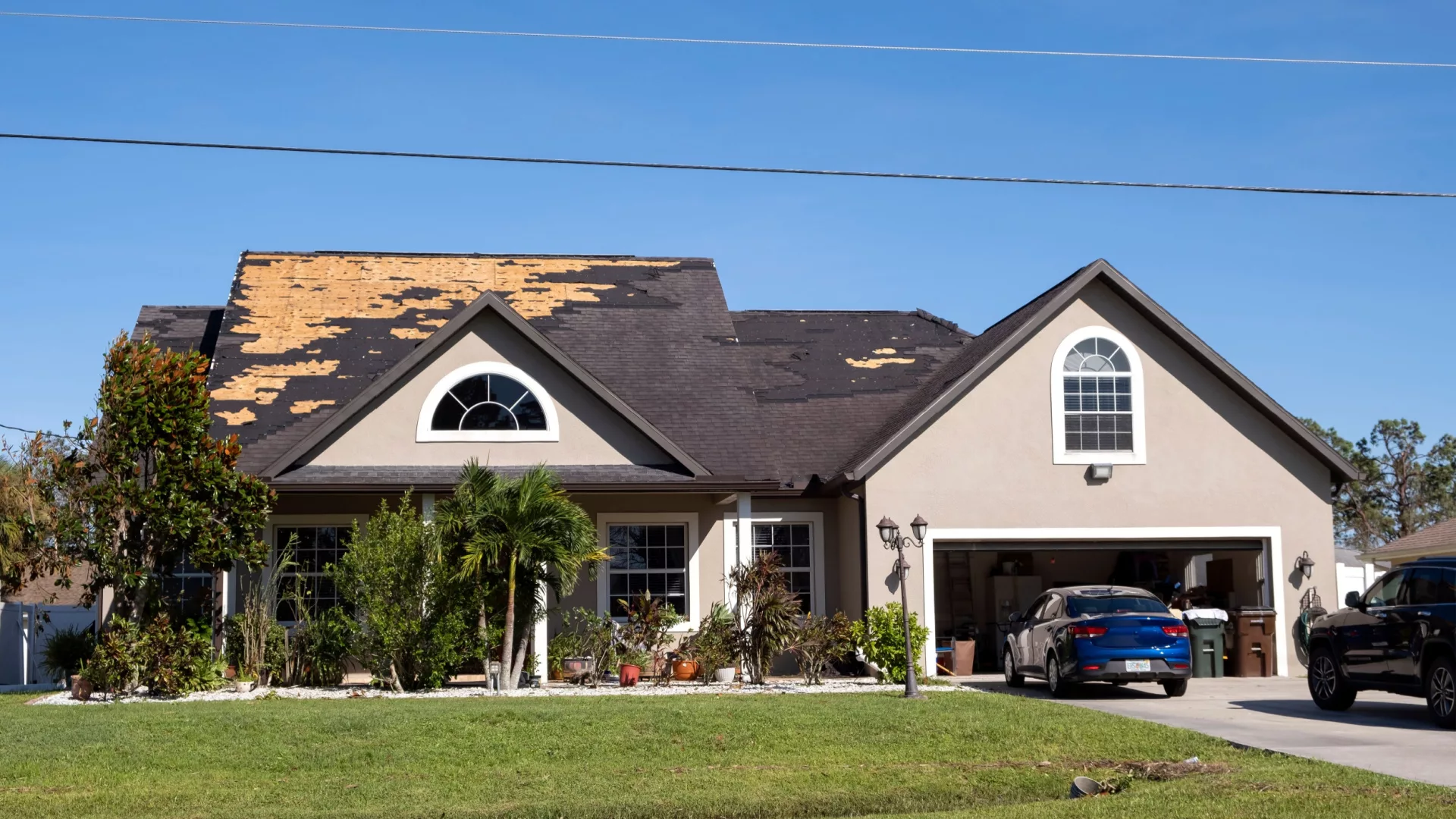
Naturally, the first thing that people think of when they think of hurricane damage is high winds. And that’s fair! In a hurricane, high winds can reach over 160mph, which can easily tear up parts of a roof, depending on what it’s made from and what condition it’s in. But while high winds are a serious threat, they aren’t the only reason you should be looking for the best type of roof for hurricane resistance.
Here are some of the other common factors that your hurricane-proof roof will need to resist.
Storm Debris
High winds don’t just affect roofs, though. And often, they result in storm debris flying around at high speeds, which can pose a very real threat to your home’s roofing system. Leaves and other light debris are unlikely to be dangerous, but when high winds send branches flying, they can do substantial damage.
For this reason, the best type of roof for hurricanes needs to be impact-resistant so that it can stand up to hurricane storm debris.
Hurricane Rains
Florida summers see near-daily showers, but that’s very different from rain during a hurricane. Due to the odd angles at which hurricane rains fall, they strike your roof differently from normal rain. This can lead to leaks, as the rain seeps in past areas that would normally be watertight.
This most often happens at ridge vents, which provide ventilation from the attic. Normal rains are unlikely to penetrate this ventilation system, but heavy hurricane rains can lead to new leaks, especially if your roof is not made of a hurricane-resistant material.
Trapped Water
Sometimes, the danger of a hurricane isn’t obvious until after the storm has passed. And this is exactly what happens when a storm leads to standing water being trapped on your roof. If areas of your roof are low-slope (meaning nearly flat), heavy hurricane rains can lead to water being trapped if your roof doesn’t have a proper irrigation system. And that can lead to big problems down the road.
Over time, standing water erodes your roof and leads to leaks and other long-term weakening of your roof. Often, roofs with standing water on them need to be replaced entirely if the water isn’t drained quickly. And while repairs after a storm are possible, the best solution is to prevent damage with the best type of roof for hurricane season.
Ranking the Best Types of Roofs for Hurricane Season 2023
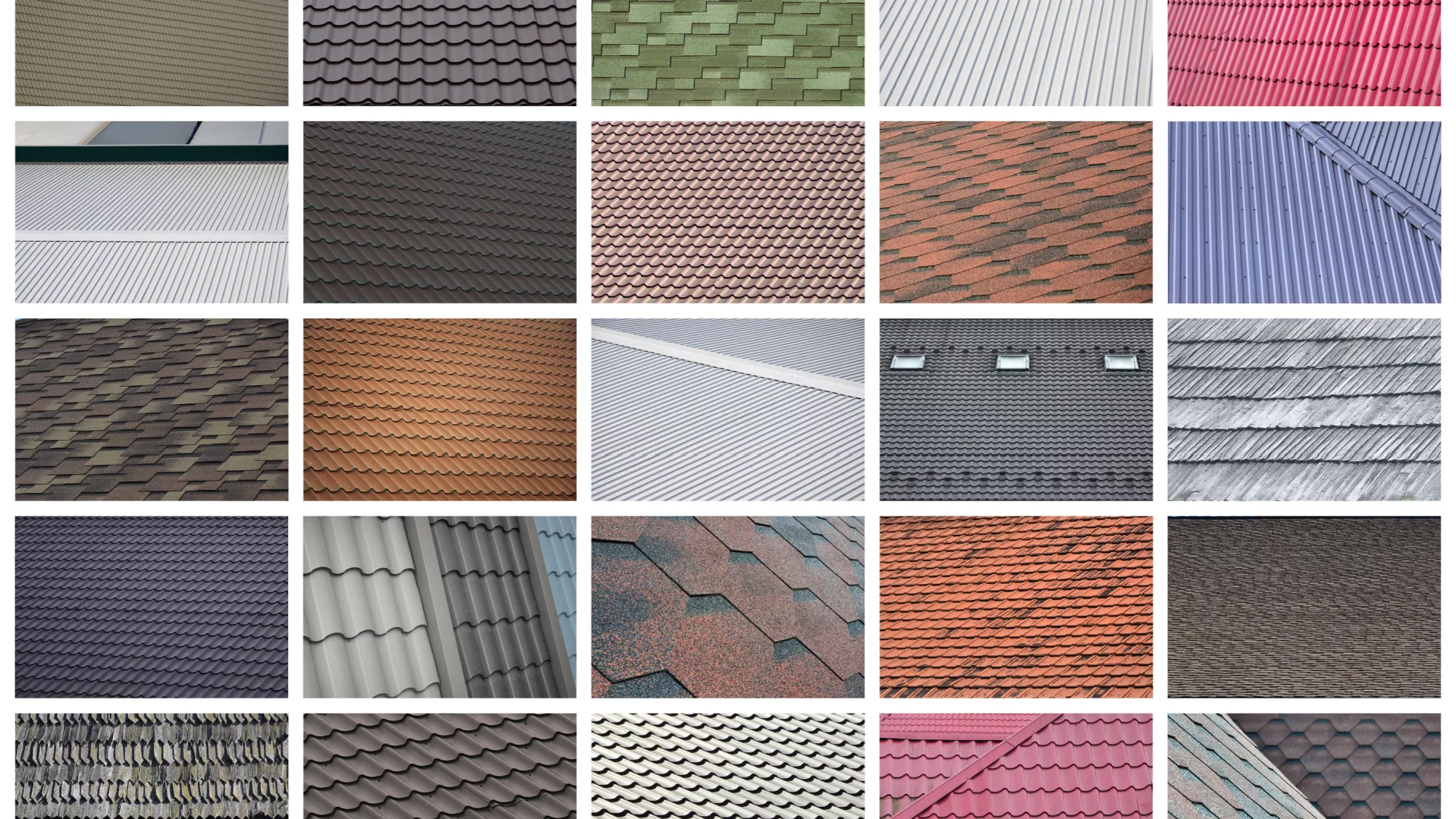
Roofing technologies are always evolving, so the “best” type of roof for hurricane season can change over time. But we’re going to present the latest, most up-to-date information on the best types of roofs for hurricane resistance. And to start our countdown to the best roofing material for hurricanes, we’re starting with a classic: shingle roofing.
3. Shingle Roofs
Asphalt shingles are the standard residential roofing option—they’re even installed on 80% of homes. And there’s a lot to love about shingle roofs: They’re affordable, reasonably durable, and can last for 15-25 years. However, they are not the best type of roof for hurricane season.
This is because, while they’re hardy, they usually can’t withstand winds in excess of 110mph. Does this mean that a shingle roof will be completely destroyed by a hurricane? Most likely not! But after a hurricane with extreme high winds and debris, your roof will most likely be missing a few shingles, at least. This may not require a roof replacement, but it will likely require repairs after the storm has passed.
To their credit, though, shingle roofs are generally good at withstanding smaller forms of storm debris. So while they’re not immune to damage from flying debris, they’re more resistant to it than some other residential roofing materials.
2. Tile Roofs
Tile is a popular roofing option in the Greater Tampa Bay region, and it’s not hard to see why: It’s beautiful, fits the local style, and is available in a variety of colors and materials, like concrete or clay. But how does it stand up to hurricanes and other Florida storms?
While tile roofs are not the best type of roofs for hurricanes, they’re a strong contender in second place. Because they’re heavy, tile roofs are better equipped than shingles to withstand high winds of up to 125mph. And with an average lifespan of up to 50 years, tile roofs are some of the best roofing materials for high winds.
But that doesn’t make them the best type of roof for hurricane resistance. First, tile roofs are an expensive roofing option, and in most cases will be the most expensive roofing material on this list. Moreover, they’re also vulnerable to storm debris, especially clay tiles, which can easily shatter. But the good news is that replacing tile, while somewhat expensive due to the material, is a simple repair.
1. Metal Roofs
There are a lot of reasons why metal roofs claim the number one spot for the best types of roof materials for hurricane resistance. First, it’s an extremely long-lived roofing material that can last for 40-70 years when properly maintained. But more than that, it’s also the best roofing material for high winds, since it can withstand winds of up to 140mph or more.
Metal roofs are also extremely water-resistant, which helps with preventing leaks during a hurricane. And while they’re not a cheap roofing material, they’re less expensive than most tile roofing options.
If metal roofs have any flaws, it’s two things: style and vulnerability to storm debris. Some people don’t like the look of a metal roof, and while they’re strong and durable, they can sometimes dent under hail or heavy storm debris. But luckily, there is an easy solution to both of these issues.
Tilcor metal roofing products are coated in stone. Not only does this create a more classic, timeless aesthetic, but it also improves resistance to hail and storm debris. In this way, stone-coated metal roofing could be an excellent solution if you’re worried about the look of a metal roof or any potential dents.
Be Picky About Your Roofing Company
After all this hard work and reading about the best types of roofs for hurricane season, it’s normal to want to wrap things up quickly. But never settle for a roofing company that you don’t have complete confidence in.
If you have a roofing company you’re considering, check out their reviews. For example, Classic has over 350 reviews and an average 4.8-star rating on Google. Be sure to check for both a high volume of reviews as well as high average reviews. This tells you that the company is both experienced and well-respected in your community, which only comes with years of high-quality work.
On top of that, try to find out how the company conducts business. There is a common issue where Florida roofing companies use inexperienced subcontractors to complete their jobs, and this can create headaches for homeowners when work isn’t completed the right way. That’s why Classic never uses subcontractors for our jobs. Instead, we only use our crew of Classic employees. This way, we know that everyone is trained and knows how to follow the best safety procedures.
As you can see, Classic provides great roofing results every time. And whatever type of roof you choose to hurricane-proof your home, we can install it securely and soundly to give your home the best protection possible. To get started, all you have to do is schedule your free estimate and we’ll give you a comprehensive quote on the cost of your roof replacement. Reach out and see why Florida loves Classic and our 100% happiness guarantee!

